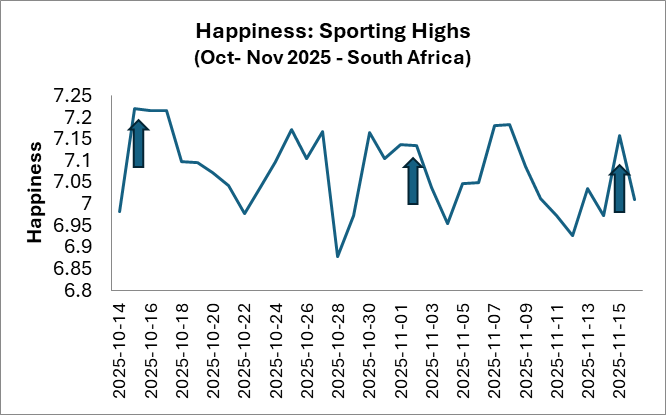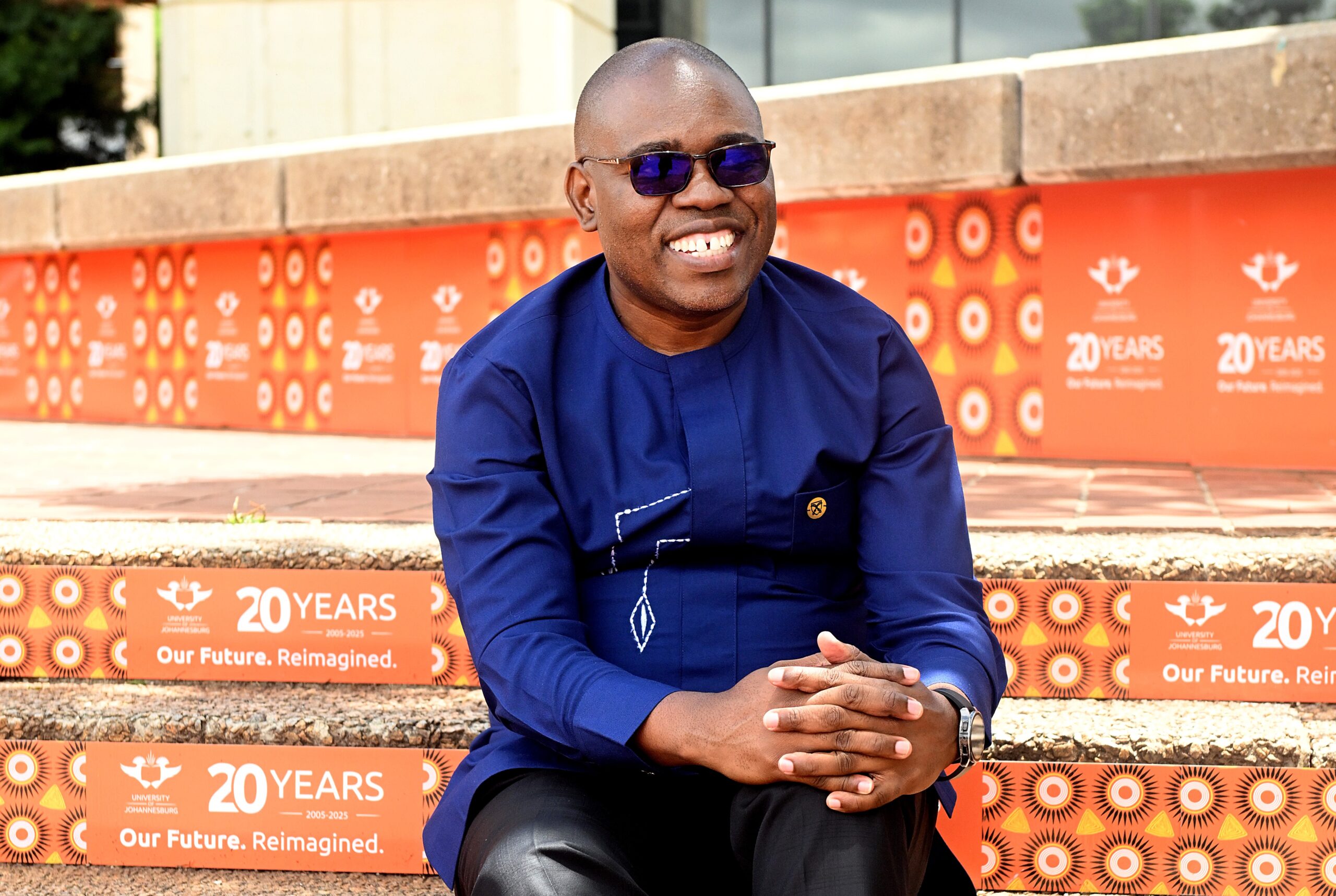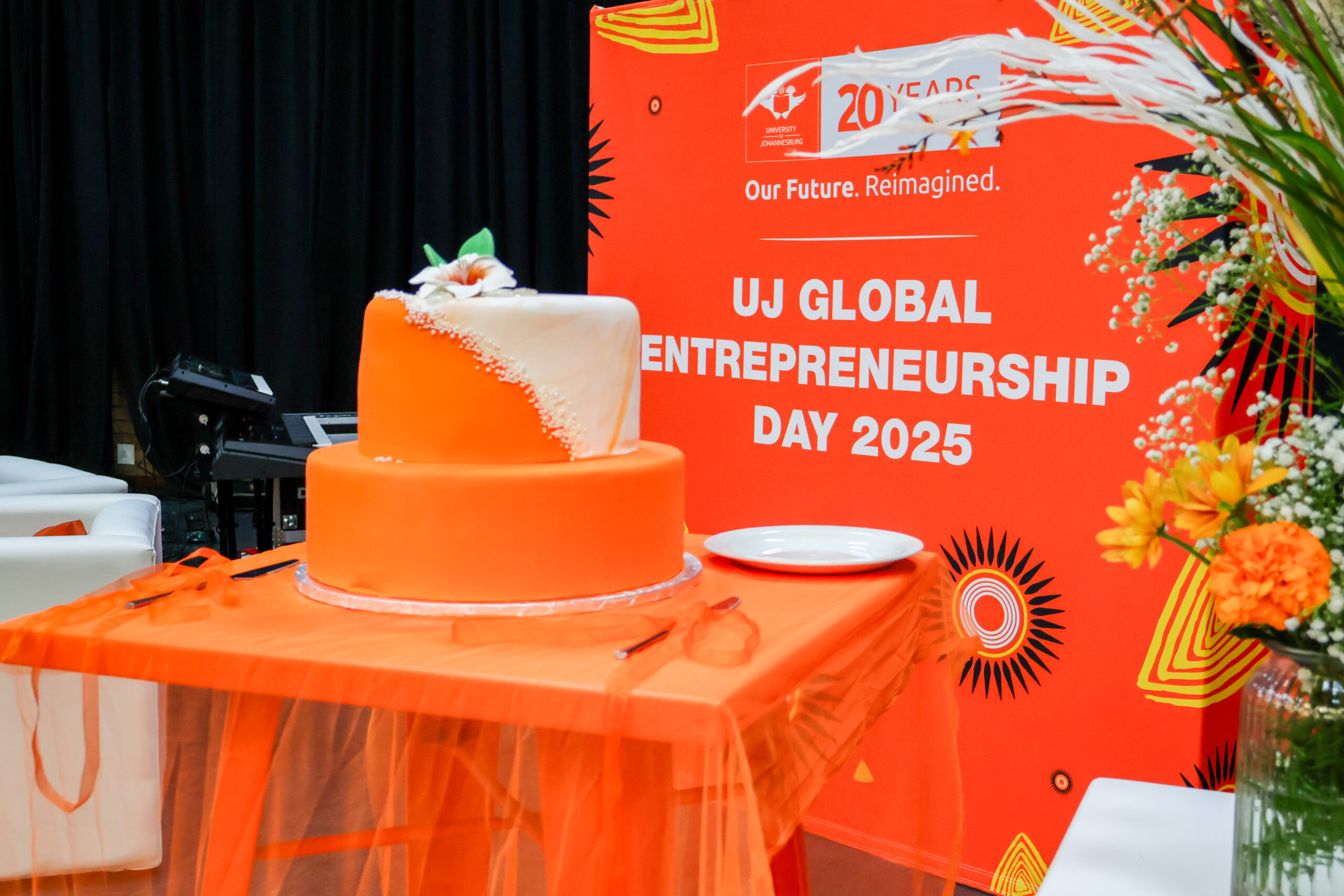ATTENTION: NEWS EDITORS & REPORTERS
MEDIA RELEASE
For immediate release
Thursday, 20 November 2025
Recent sporting victories by South Africa’s national teams have sparked a surge of happiness and unity across the country. This is according to University of Johannesburg (UJ) wellbeing economist and researcher, Professor Talita Greyling, who tracks these trends through the Gross National Happiness Project (GNH.today). The GNH measures emotional experiences in near real-time and nowcasts happiness levels in selected countries using advanced data analysis techniques.
On Saturday (15 November), the Springboks’ match against Italy, despite controversy over red cards and questionable refereeing decisions, generated a strong sense of national unity.
“Happiness levels rose as millions of South Africans shared the same frustration, pride, and determination to stand behind their team (see figure 1). When tracked over a month, the sustained upward trend shows that sport continues to have a positive influence on the national mood,” said Prof Greyling.

Nearly a month earlier, Bafana Bafana’s 3–0 victory over Rwanda (14 October 2025) led to a significant rise in national happiness. “Similarly, the nation rallied behind the Proteas Women, who reached the ICC Cricket World Cup final (2 November 2025). These moments illustrate how effortlessly South Africans unite in pride and support of their national teams,” she explained.
In contrast, the political climate has dampened public sentiment in recent weeks.
Renewed diplomatic tension with the United States, concerns surrounding the upcoming G20 Summit in Johannesburg, and ongoing revelations in the South African Police Service corruption inquiry have contributed to public discord.
“Adding to this is economic unease following the newly announced short-term budget, which introduces a controversial 3% inflation target,” Prof Greyling added.
She said the data showcases that sport has a more positive influence than politics.
“Clearly, the political ideological divide stands starkly against the sports’ unity. Sport repeatedly shows the country’s capacity for unity. Politicians and political parties can learn valuable lessons from the sports arena,” concluded Prof Greyling.
Professor Greyling’s research is conducted as part of the Centre for Wellbeing, AI and Social Impact within the College of Business and Economics (CBE) at UJ, where she serves as Director.
Ends.
Note to the media: Professor Greyling is available for interviews. Please contact me to arrange.
Issued by:
Masego Panyane
Media Liaison
011 559 1571
084 067 7528



